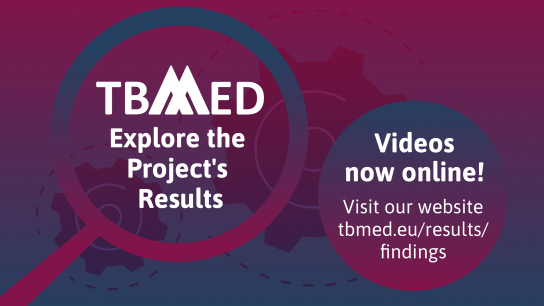
End of TBMED: Support for European MedTech Companies Continues with OITB go.Med
After more than four and a half years of groundbreaking work, the TBMED project is coming to a successful close at the end of August. The project's main goal was to provide expert support to medical device developers, from the early stages of development to the optimised transformation of prototypes into valuable and innovative products. With the founding of the Open Innovation Test Bed (OITB) "go.Med", this ambitious goal has been mostly achieved.
While go.Med is not yet operating at a commercial level, the TBMED partners are striving to turn it into a physical test bed of connected laboratories supported by an online platform in the near future. “The TBMED partners have made significant strides in advancing the field of medical device development, and their work will continue to have a lasting impact on the industry”, says Iraida Loinaz, who coordinated the project. “All partners contributed instrumental components and achieved important results while gaining valuable experience with the OITB services”.
By making the development process for medical devices easier, cheaper, and faster, go.Med will significantly impact various areas and sectors, including small and medium-sized enterprises (SMEs) in the medical technology sector. By providing a single-entry point to services along the whole value chain, go.Med will enable European SMEs to face global competition by large suppliers, deliver better care at more reasonable costs, and, therefore, stay ahead of the global MedTech innovation race.
This will ultimately benefit patients everywhere by increasing their access to top-quality high-risk medical devices and will help to put the EU at the forefront of the tech race. “It was great to see the different partners – from universities and technology centres to private companies – bring in their collective expertise and commitment to help SMEs streamline their device development approach”, adds Loinaz.
To highlight the project’s overall findings and groundbreaking results, but also the TBMED journey towards achieving these goals, a series of videos has been published now. The short clips offer a peek into the three initial use cases involving AJL Ophthalmic, SILTISS/SILAB and the Universidad de Zaragoza, spotlight the benefit of implementing a new AGILE design process for medical devices and detail the go.Med platform.
Watch the videos on the project website to learn more.